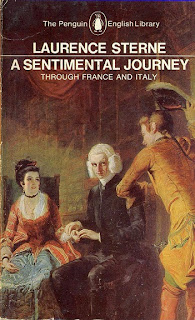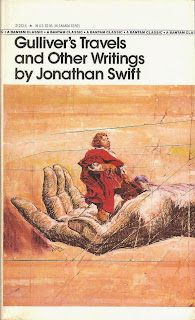 1. Joy Of A Toy Continued - 2:54
1. Joy Of A Toy Continued - 2:542. Town Feeling - 4:51
3. The Clarietta Rag - 3:21
4. Girl On A Swing - 2:49
5. Song For Insane Times - 4:00
6. Stop This Train (Again Doing It) - 6:05
7. Eleanor's Cake (Which Ate Her) - 2:53
8. The Lady Rachel - 5:17
9. Oleh Oleh Bandu Bandong - 5:35
10. All This Crazy Gift Of Time - 3:57
------------
11. Religious Experience (Singing a Song in the Morning), Take 9 - 4:46
12. The Lady Rachel (Extended Mix) - 6:42
13. Soon Soon Soon - 3:23
14. Religious Experience (Singing a Song in the Morning), Take 103 - 2:50
15. The Lady Rachel (Single Version) - 4:51
16. Singing a Song in the Morning - 2:52
A whimsical avant-pop concoction, Joy Of A Toy finds Kevin Ayers's considerable songwriting talent in full flower. Eclectic and eccentric, the album includes music hall songs, jazz-tinged psychedelia, minimalist experiments, folk epics, marching band parades, and dreamy lullabies.
Hints of Ayers's musical personality can be heard on the first Soft Machine album, but he really bursts out here. The jaunty "Clarietta Rag" is miles away from the uber-hip Soft Machine, as is the delicate "Eleanor's Cake" with its tender piano swells, calming flute, and close vocal harmonies. There are a few connections: "Stop This Train (Again Doing It)" merges the repetitive minimalism of Soft Machine's "We Did It Again" with a Dylanesque allegory (plus a fantastic organ solo from Soft Machine's Mike Ratledge). "Song For Insane Times", which features all of Soft Machine as the backing band, is classic Canterbury prog, complete with clever lyrics, jazzy instrumentation, and a fun 13/8 riff. David Bedford's lush, romantic orchestrations elevate "Town Feeling" and the title instrumental, while evoking mild disturbance and unease during "The Lady Rachel" and "Oleh Oleh Bandu Bandong" (based on a Malay folk song). The acoustic-guitar-with-harmonica closer "All This Crazy Gift Of Time" owes a lot to Bob Dylan again, but in a much more melodic mode.
My favorite song comes from the bonus tracks. "Religious Experience (Singing a Song in the Morning)" is the song that got me into Ayers. A simple pop song with jangly guitars, bouncy bass, fun drums, and feel-good vocal harmonies, it just repeats the same four vocal lines over and over, with instrumental breaks to punctuate the mantra. He takes a very limiting musical idea and infuses it with joy. It's truly representative of the album as a whole. You probably won't find much revolutionary or impressive here, just a bunch of people enjoying music.
Arbitrary rating: 4 out of 5 whimsical avant-pop concoctions








